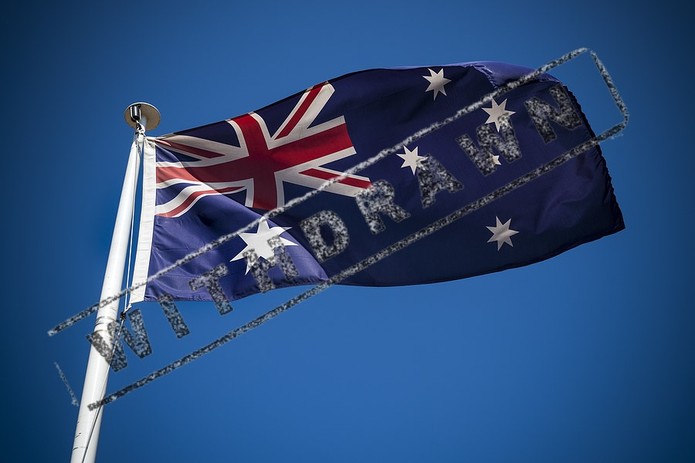 Ever since Saudi Arabia showed an interest in ‘Western’ sport as part of its bid to overhaul its image, it has seemed almost inevitable that they would be handed the keys to a major tournament.
Ever since Saudi Arabia showed an interest in ‘Western’ sport as part of its bid to overhaul its image, it has seemed almost inevitable that they would be handed the keys to a major tournament.
Money talks, one way or another, and so few eyebrows were raised when FIFA chief Gianni Infantino revealed that the Saudis would, you guessed it, host the World Cup in 2034.
That tournament will come barely a decade after Qatar had their moment in the sun, forcing a complete overhaul of the football season to accommodate a winter World Cup – which, of course, will also be the case in 2034.
It’s a controversial move, in more ways than one, for a country with such a disreputable human rights record to host the World Cup, although in truth FIFA haven’t had much choice but to give them the tournament given that they were the sole bidder.
But why was Saudi Arabia’s the only bid for arguably the most iconic sports event on the planet? The answer to that question is rather muddy….
What is the Bidding Process for the World Cup?

It was no secret that the 2034 World Cup would be handed to a host country within the Asian Football Conference (AFC) or Oceanic jurisdictions.
Australia were amongst the frontrunners throughout the bidding process; that’s a country with the weather, the sporting infrastructure and the culture via which to welcome a maiden World Cup.
However, officials in the country decided to withdraw their bid at the last minute – leaving the only other interested party, Saudi Arabia, with a free run at the prize.
So why did the Aussies pull out of the race? In the rich cricketing heritage of the country, a spokesperson played a straight bat to that very question.
“We have explored the opportunity to bid to host the FIFA World Cup and – having taken all factors into consideration – we have reached the conclusion not to do so for the 2034 competition,” a Football Australia representative said.
That’s the public representation anyway. But, as rumoured by those that are close to these things, it’s been said that the AFC president, Sheikh Salman bin Ibrahim Al Khalifa, had thrown his weight behind the Saudi Arabian tender, with the imposition being that he would not look too kindly upon Australia if they continued with their rival bid.
In the interim, other AFC members – including the influential Japan and India – also publicly supported the Saudi bid.
Infantino himself has regularly been photographed in the company of Saudi Crown Prince Mohammed bin Salman and at club games in the country, so the whole situation comes with little surprise – the ‘sigh and then get on with it’ attitude that is allowing the Saudi Arabian aristocracy to continue with their infamous sportswashing campaign.
It’s also interesting that FIFA fast-tracked the 2034 World Cup bidding process – in a shock announcement, it gave interested parties just four weeks to come up with a formal plan for hosting the tournament. The Saudis, of course, had already been given the heads up.
One bid. One winner. But how the Saudis came to be the sole bidder is a matter that will be investigated for years to come.
Do Host Countries Make Money from the World Cup?

Perhaps there’s another reason why countries are becoming more reluctant to host the World Cup.
It costs millions, literally, to put on a showpiece occasion like the World Cup, and where new stadiums, roads and the like need to be built the sum can easily surpass the billion mark.
Let’s face it: many traditional economies are feeling the pinch of the health crisis, war and the many other factors governing the planet, whereas the main source of income for Saudi Arabia, Qatar and co – oil – is becoming more valuable, if anything, in an era of scarcity.
The 2026 World Cup will be hosted by three countries and the 2030 edition by six, which perhaps reveals the extent of the financial burden of hosting these tournaments alone – hence the lack of bidders for 2034.
At a time when many national governments are feeling the pinch, spending frivolously on hosting a World Cup might be considered foolhardy – if this trend continues, multi-country World Cups are likely to become the standard in the future.
Will Saudi Arabia Take Over Football?

That would depend on your definition of ‘taking over’.
Hosting a World Cup is a good start at, erm, world domination, although Newcastle United – effectively owned by the Saudi aristocracy – are yet to really make inroads in their bid to become a dominant force of European football.
The summer of love for the Saudi Pro League, which saw the likes of Karim Benzema, Sadio Mane and Jordan Henderson head for the Middle East, has not exactly drawn millions of eyes and hearts to football in the country – the feeling that ageing stars are using the Saudis for one last astronomical payday is hard to ignore, given that the average age of players in the league is 28; making it the ‘oldest league’ out of the 118 top-tier divisions.
Until Saudi Pro League clubs are signing world-renowned players in their prime, and until a Saudi-owned outfit is rivalling the UAE-backed Manchester City in the Premier League and Champions League, it’s unlikely that they will ‘take over’ football any time soon.